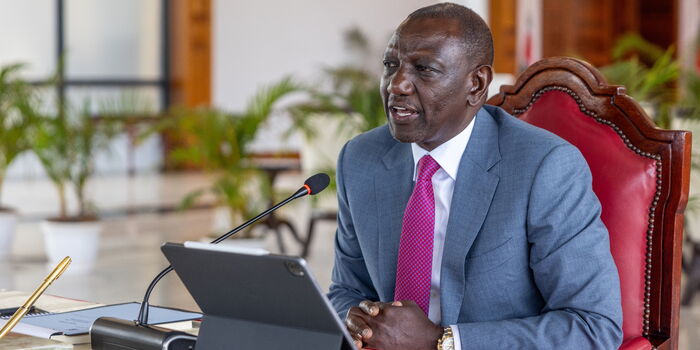How Ruto’s Digital Nomad Visa Will Affect You

Kenya on Wednesday, October 2, introduced a digital nomad permit, a move that places it among the few African nations actively pursuing this rapidly growing segment of remote workers.
While many of President William Ruto’s policies have stirred debate, this particular one seems to have bypassed the usual wave of criticism. But what exactly does it mean for the average Kenyan?
Let’s start by understanding who these digital nomads are. They are remote workers, often earning high incomes in US Dollars, British Pounds, or Euros, who are not bound to any fixed location. Their jobs, mostly in tech and other digital fields, allow them to live anywhere in the world, choosing countries with lower living costs and attractive lifestyles.
Globally, there’s a surge in digital nomads, with estimates placing their numbers at around 40 million in 2023, a figure projected to rise to 60 million by 2030. Countries such as Costa Rica, Portugal, and Mexico have already embraced this trend by offering visas that allow nomads to stay for extended periods. In Africa, Kenya now joins Mauritius, Seychelles, Cape Verde, and Namibia in recognising this opportunity.
A photo of college students in a computer laboratory
Photo
Oshwal
So, why does Kenya want to attract digital nomads? It’s simple – the economic benefits are substantial.
These professionals, who usually hail from wealthier nations like the US, Canada, and the UK, are drawn to countries that offer both affordability and beauty. Kenya’s natural wonders, such as the Masai Mara and Nairobi National Park, make it an ideal destination.
But it’s not just about tourism. When digital nomads settle in a country, they spend heavily on accommodation, food, transportation, and leisure. Their spending creates a ripple effect, boosting local businesses like Airbnbs, restaurants, and taxis.
This influx of foreign capital could help stabilise and stimulate local economies, particularly in regions favoured by tourists.
Moreover, the taxes paid by thriving private businesses as a result of increased nomad spending could support public sector growth. For Kenya, this presents an opportunity to strengthen the economy without the direct need for government investment.
The potential capital injection from nomads could revitalise the hospitality and service industries, ensuring steady growth in areas they frequent.
The concept is far from new. Digital nomads have already left their mark on cities like Medellín in Colombia and various destinations in Southeast Asia. However, their presence doesn’t come without challenges. Some countries have faced rising living costs as a result of the influx of wealthy foreigners. Portugal, for instance, recently restricted the issuance of Airbnb licenses to control housing price surges.
Kenya’s digital nomad permit, while promising, faces significant challenges. One key issue is the lack of a legal framework tailored to digital nomads. Currently, they would need to obtain expensive work permits, which they often cannot qualify for as they work for foreign companies, excluding a segment of high-income earners from contributing to the local economy.
Without a streamlined visa process, Kenya risks losing out to countries like Mauritius, which offer affordable and straightforward applications. The bureaucratic hurdles could deter potential nomads from choosing Kenya as a base, limiting the anticipated economic benefits.
Additionally, there are concerns about rising housing costs, as seen in Portugal and Bali, where an influx of wealthy foreign workers has priced out locals. If unmanaged, digital nomads could strain infrastructure and widen economic divides, with the benefits concentrating in specific sectors while leaving many Kenyans untouched.
Kenya will need to keep an eye on such potential issues. While the digital nomad economy brings immense opportunities, it can also strain local resources if not managed carefully. Ensuring affordable housing for Kenyans and protecting local businesses from being overshadowed by international interests will be key concerns moving forward.
Tourists watching elephants at the Masai Mara in Kenya.
Photo
&Beyond Bateleur Camp



